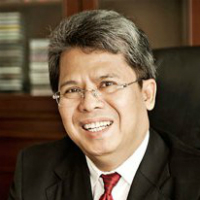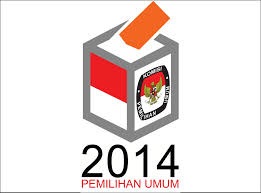2014 Past Events
10th Anniversary Postgraduate Conference
- "2014 Annual CILIS Islamic Studies Postgraduate Conference"
Hosted by the Centre for Indonesian Law, Islam and Society
11 & 12 November 2014This conference brings together postgraduate students around the world who are researching topics relating to Islam. It provides students with a supportive, collegial atmosphere and the opportunity to meet students with similar interests. Students benefit from feedback received from their peers and selected academic experts in the field. Special sessions on thesis-writing and small-group feedback on student research are included as part of the program.
Postgraduate students from any university are invited to present papers on their current research.This year, 23 speakers will present in 7 panels over 2 days Each speaker will present papers on their proposed topics for 15 minutes with the aid of a PowerPoint slideshow. Questions and discussions will take place after all speakers of a panel have presented. Post-presentation, the entire panel and their respective mentors will participate in a closed feedback session.
Mentors Professor Tim Lindsey, Professor Virginia Hooker, Professor Abdullah Saeed, Associate Professor Greg Fealy, Dr Kiresten Steiner, Dr Nadiryah Hosen

Book Launch
- "A Journey against Defeat: Narratives of Women's Rejection of Poverty?"
Lies Macroes-Natisir and Anne Lockley
Hosted by the Centre for Indonesian Law, Islam and Society
14 October 2014
CILIS Evening Seminar
- "Indonesia's Presidential Election: Reform Challenges for the New Administraion"
Dr Todung Mulya Lubis
Hosted by the Centre for Indonesian Law, Islam and Society
8 October 2014The elections of 2014 are a critical juncture in Indonesian history. Fifteen years after the end of the authoritarian New Order, and after ten years of democratic rule under Yudhoyono, Indonesians must decide whether to consolidate the democratic reforms introduced after the fall of Soeharto, or dismantle them. This choice has polarised Indonesia and many feel confused by events this year. In this lecture, Dr Lubis looks at the increasingly divisive debate over democracy and Reformasi in Indonesia to assess whether his country will move backward or forward after the new administration is sworn in on 20 October. He will focus on human rights and other key areas of law reform that need attention, as well as the threats they face, to set out an agenda for getting Indonesian Reformasi back on track.
Presenter Dr Todung Mulya Lubis is one of Indonesia’s leading human rights lawyers and most influential legal thinkers. He completed his undergraduate Law degree at the University of Indonesia (1974); his LLM at the University of California, Berkeley; a second LLM at Harvard Law School; and his JSD at the University of California, Berkeley. He has been a senior Adjunct Member of the Faculty of Law, University of Indonesia since 1990, where he was first appointed in 1975. From 1980-1983, he was Director of Indonesia’s famous dissident NGO, the Legal Ad Foundation, where he worked for many years. His influential 1983 scholarly book In Search of Human Rights: Legal-Political Dilemmas of Indonesia’s New Order 1966 – 1990 played an important role in defining democratic thinking about human rights in Indonesia. Dr Lubis is also Founding and Senior Partner of a prominent law firm in Jakarta and has been lead counsel in a number of major human rights cases, often on a pro bono basis. These include acting for the Bali Nine in an attempt to convince Indonesia’s Constitutional Court to abolish the death sentence and against President Soeharto. He has also held a series of senior government appointments. In 2014, he was appointed as Honorary Professor at the Melbourne Law School, The University of Melbourne

Indonesia's Islamic Education System
- "Incubators for Extremists? Radicalism and Moderation in Indonesia's Islamic Education System"
Dr Jamhari Makruf
Miegunyah Public Lecture 2015
10 June 2014Hosted by the Centre for Indonesian Law, Islam and Society and generously funded by the Miegunyah Distinguished Visiting Fellowship Program, the Melbourne Law School is proud to present the following public lecture:
"Incubators for Extremists? Radicalism and Moderation in Indonesia's Islamic Education System"
Islamic schools and universities in Indonesia have been accused of producing militant Islamist extremists. The Bali bombers, for example, attended 'hard-line' schools and the recent spate of book-bombs targeting champions of Islamic moderation were sent by a student at the State Islamic University. But is this perception actually correct? This lecture looked at the struggle between moderate and extremist ideas in Indonesia's madrasahs and Islamic teritary institutions and its implications for Australian policy.
-Is Islamic thought in Southeast Asia becoming more or less radical?
-Should education in Islamic societies be reformed to counter extremist ideas and if so, how?
-Should Australia have a role in this process?
-How are extremists to be distinguished from moderate Islamic groups?
-Has the secular West failed in dealing with Islamic law and politics in Asia?
-The paper will draw on both Islamic and Western intellectual traditions to answer these questions.
CILIS Evening Seminar
- "The Indoensian Election: What Really Happened?"
Dr Dirk Tomsa, Dr Vanessa Hearman, Professor Thomas Reuter, Dr Dave McRae
Hosted by the Centre for Indonesian Law, Islam and Society and the Electoral Regulation Research Network
14 April 2014Indonesia voted on 9 April 2014, with a total of 20,893 legislative seats contested across the archipelago, from the national to local levels. This was one of the most significant elections in Indonesian history. At the national level, the DPR (national legislature) was arguably the single most powerful political entity in the country, and provincial and district legislatures are major centres of power in the regions. After the decade of Yudhoyono’s administration, Indonesia faced an uncertain future. The parties who won the largest number of seats in this election would be able to play a key role in deciding whether to consolidate the gains of Reformasi or follow a new path altogether. This election also signaled generational change in Indonesian politics. More Indonesians voted for the first time than ever before, and more of them were middle class. This began to influence policy some years ago, but in this election their preferences were sure to dominate the outcome. The results of this election also determined which parties can nominate candidates for the July presidential and vice-presidential elections. The popular vote on 9 April gave a strong indications as to who was likely to be sworn in as Indonesia’s 8th president in October.
The Centre for Indonesian Law, Islam and Society and the Electoral Regulation Research Network presented a ‘post-mortem’ panel discussion analysing how the election was conducted, the results, what they meant for Indonesia’s future and the forthcoming presidential elections, and the implications for troubled relations with Australia.
Chairs: Professor Tim Lindsey and Dr Helen Pausacker

CILIS Research Seminar
- "Women and Islamic Higher Education in Indonesia"
Dr Dina Afrianty
Hosted by the Centre for Indonesian Law, Islam and Society
12 February 2014As Indonesia democratizes, Indonesian youth are confronted by at least two major conflicting influences: Western liberal values and conservative Islam. They become familiar with not just Western lifestyles but also issues and discourses that originated in the West, including notions of human rights, women’s rights, gender and equality. Radical and conservative Muslim groups are also at work, however. They use religious education as a means to propagate their opposed agenda of Islamising society, and they pay particular attention to women. It is therefore interesting to see how Islamic educational institutions in Indonesia have responded to this very challenging environment. Previous research on Indonesia has argued that it has among the most open and innovative Islamic educational systems in the world, now reformed to offer not only religious studies but also general sciences and various marketable ‘secular’ skills. In fact, the continuing process of reform of Islamic schooling in Indonesia has paved the way for significant advances in Muslim education, intellectualism and activism. This presentation focused on female students who study at Islamic higher education institutions in Indonesia. Dr Afrianty discussed their backgrounds and what motivates them to pursue their studies at Islamic higher education institutions when secular education is widely available and provided by the state. More importantly, Dr Afrianty touched on how religious education in Islamic tertiary institutions shapes and forms gender understanding of the status of women in Islam and in Indonesian society more generally.
Presenter Dina Afrianty is currently an Endeavor Post-Doctoral Research Fellow at the Melbourne Law School and an Associate of the Centre for Indonesian Law, Islam and Society. She is also a lecturer in the Faculty of Social and Political Sciences of the State Islamic University (UIN) Jakarta, and Project Officer at The Asia Foundation for the Civil Society Capacity Strengthening Program for the Legal Reform Component of Australia- Indonesia Partnership for Justice. She is also a research fellow at the Centre for Social Difference, Columbia University.

CILIS Research Seminar/PhD Completion Seminar
- "Indonesian Banking: Could it Crash Again?"
Mr Andy Schmulow
Hosted by the Centre for Indonesian Law, Islam and Society
31 January 2014